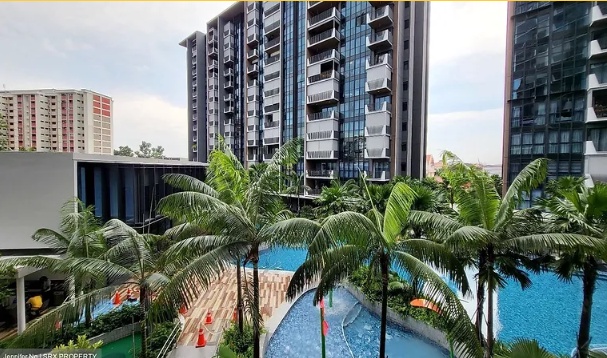Investing in property in Singapore is both an exciting and complex decision, influenced by the nation’s vibrant economy, stable political landscape, and high quality of life. This blog aims to serve as a comprehensive guide for anyone considering purchasing Singapore property in this dynamic market. We will delve deep into what makes the Singaporean real estate market distinctive, discuss the various types of properties available, and examine the key considerations and steps involved in making an informed purchase.
Understanding the Singapore Property Landscape
Singapore's real estate market is tightly regulated and highly organized, reflecting the city-state's limited land space and its government's strategic planning initiatives. Here’s a closer look at the segments of the market:
- Public Housing vs. Private Housing: The majority of Singaporeans reside in public housing units managed by the Housing and Development Board (HDB). These units are price-controlled and designed to be affordable, with eligibility and resale governed by specific rules. Conversely, the private property market includes condominiums, executive condominiums (ECs), and landed properties, offering greater luxury and fewer restrictions but at higher price points.
- Types of Ownership: In Singapore, properties are typically either freehold or leasehold. Freehold properties offer perpetual ownership, making them more desirable and expensive. Leasehold properties are mostly 99 years in duration, more affordable but potentially depreciating as the lease runs out, though they can also be renewed under certain conditions.
Detailed Legal and Financial Considerations
Navigating the legal and financial aspects of buying property in Singapore is critical:
- Stamp Duty and Additional Costs: The Buyer’s Stamp Duty (BSD) is mandatory for all property purchases, and the Additional Buyer’s Stamp Duty (ABSD) varies depending on the buyer's citizenship and the number of properties owned. These duties can significantly affect the total cost of ownership.
- Financing Your Purchase: Loan-to-Value (LTV) ratios in Singapore dictate that banks can loan up to 75% of the property's value for a first mortgage, decreasing for additional properties. Understanding these limits is crucial for planning your finances.
- Foreign Ownership Restrictions: Foreigners are restricted from buying certain types of property, such as HDB flats and landed homes in specific residential areas, without government approval, focusing primarily on condominiums and private apartments.
Evaluating Locations and Market Trends
The choice of location is paramount in the valuation of property:
- Key Districts and Their Appeal: Singapore is divided into several districts, each with unique characteristics and varying property values. Central districts are highly prized due to their proximity to the business hub, while suburban districts offer larger properties and more family-oriented environments.
- Infrastructure and Amenities: Properties near essential amenities like MRT stations, schools, and shopping centers generally retain higher value. Upcoming government infrastructure projects can also impact property prices positively.
- Economic and Demographic Trends: Economic growth, population trends, and government policies can affect property demand and prices. Keeping a pulse on these trends can provide insights into potential property appreciation.
In-Depth Buying Process and Tips
The process of buying property in Singapore is structured and requires careful planning:
- Initial Research: Start with a thorough assessment of your eligibility, financial capability, and the type of property you're interested in. This foundational step is crucial in narrowing down your options effectively.
- Engaging Professionals: Utilize the expertise of real estate agents, lawyers, and bankers who specialize in the Singapore property market. Their guidance can be invaluable, from finding the right property to navigating the legal paperwork.
- Viewing and Selecting Properties: When viewing properties, consider not just the property itself but also the potential for future development in the area which might affect your lifestyle or investment.
- Negotiation and Purchase: After selecting a property, negotiate the terms and price with the seller. Once an agreement is reached, you will proceed with signing a sales contract and making necessary payments, including a deposit.
- Completion of Sale: The final step involves the official transfer of property ownership, which includes settling the remaining payment, and for foreigners, potentially obtaining additional approvals.
- Post-Purchase Management: After the purchase, property management becomes a crucial aspect, especially for investors who are not residing in Singapore. Engaging a property management firm can help in handling rental needs, maintenance, and ensuring compliance with local regulations.
- Future Resale Considerations: Understanding the potential resale value and conditions for selling your property in Singapore is essential. Market trends, the remaining lease period (for leasehold properties), and future developments in the area can significantly influence resale prospects.
Conclusion
Buying Singapore property is a significant investment decision that requires detailed planning and an understanding of the local real estate market. From legal considerations to selecting the right location, each step should be approached with thorough research and professional advice. Whether seeking a home or an investment, the Singapore property market offers valuable opportunities for those who are well-prepared. By following this guide, prospective buyers can navigate the complexities of the market and make well-informed decisions that align with their long-term goals in one of Asia's most dynamic real estate environments.


No comments yet